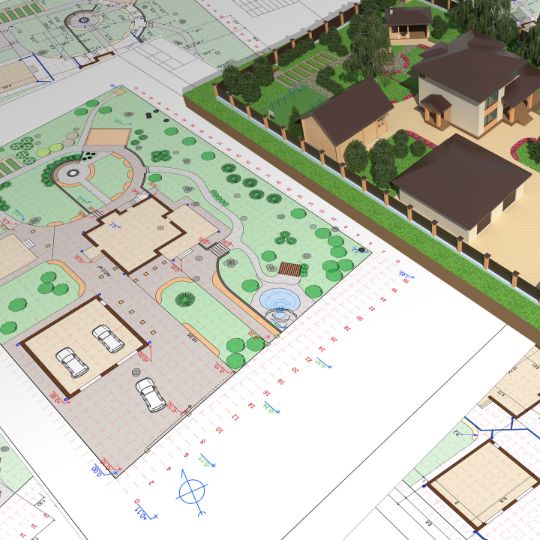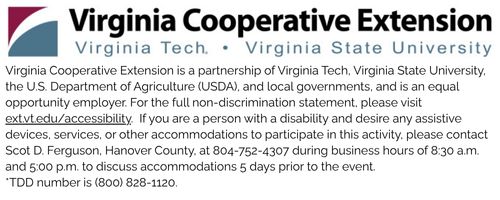So you want to start a garden? Congratulations! What a joy!
The good news is that you’re about to start a process that connects you to your neighbors, good teachers, wonderful peers, and to some of the Earth’s plants, bugs and microorganisms. The bad news is that you are jumping into a sea of information and phenomena too deep and too rough for some individual to navigate alone.
It’s easy to get overwhelmed. How do you find helpful information? Who can you trust? What is the truth?
Well, you can listen to whatever resource you choose, but it’s the goal of the Virginia Cooperative Extension to provide objective, research-based information to folks just like you. We don’t want to bombard you with heavy, irrelevant science, but we do want to present you with some resources and principles to help you get started and solve problems as they arise.
This article organizes the process of starting a garden under two basic pieces of advice which will frame our discussion on site selection, soil preparation, and planting. Links to more detailed Extension resources are embedded in the text. You can search them out when you’re ready for them.
Let’s get started!
- Don’t shoot yourself in the foot
Resist the urge to act without thinking. I know you’re excited, but hold on! There are practical matters to consider! Put on your thinking cap and let’s work through the process.
First, where are you going to put this thing? Don’t just run outside and tear up your backyard willy-nilly! Select a level, well-drained and sunny area with easy access to water. Next, remove any existing weeds or sod from your new garden spot.
Then you’ll have to do what gardeners call “work-up” the soil. Get it loose. Turn it over. There are many ways to do this, ranging in technological complexity from the shovel to the power rotary tiller.
Now it’s time to learn something more about your soil than mere observation can teach you. Obtain a soil sample kit from your county Extension office, collect a sample and send it to the Soil Testing Lab at Virginia Tech. They will analyze your sample and send you a report outlining your new garden’s “nutrition facts.”
Just as our diets provide us with nutrition, soil provides plants with nutrition (plants also convert sunlight and carbon dioxide into sugar for their own consumption through a process known as photosynthesis, but the rest of their nutrition comes from the soil).
If your soil is deficient of a particular nutrient, the report will tell you how to fix it. This is generally done with amendments, or additions to the soil. These can be derived from synthetic or organic sources, and they can take many forms. Do your homework to find products that suit you, and take care to apply them at the rate recommended in the report. Some amendments are meant to change a soil’s physical characteristics, such as manure or compost. These can transform a sandy or clay soil into a more manageable, productive place for plants to grow.
The soil sample report also includes a pH measurement. This is crucial to know, as any deviation from a plant’s particular “happy place” on the pH scale affects its ability to take in the nutrients you are working so hard to provide.
There are many variables affecting plant growth – and many of them are out of your control. But soil health is within your purview! You can set and keep reasonable expectations for your new garden only if you prepare well.
Now let’s talk about planting. In Virginia, gardening is usually a three-season affair. Gardeners generally save the fourth season (winter) to prepare for the other three. Consequently, spring is a convenient time to start a garden, but you can jump on the bandwagon whenever you’re ready. And – to stretch that metaphor a little farther – you can play whatever instrument you like! That is to say, you can plant what interests you. Keep in mind that all vegetables perform best in a particular temperature range. Beets prefer cooler temperatures, for example, while tomatoes like it hot.
So grow what suits you, but work within the confines of the season.
You can grow many garden vegetables from seed sown directly in the garden, but some plants (notably peppers and tomatoes) are better started indoors and transplanted to the garden. This process is not for the faint of heart. An easier, quicker option is to purchase transplants for your garden. Here again, do what suits you! Just know how deep the water is before jumping in.
After the thinking and the planting are done, you’ll be on weed, water and pest duty. This is the time of careful observation and steady work. Remember, everything in your garden is competing for the nutrients in your soil. Since you’re not actually trying to grow weeds, why give them a piece of the nutrient pie? Keep the weeds pulled. Discipline costs now but pays later.
In this stage, you may also encounter a disease or pest among your gaggle of developing vegetables. Just like humans, plants are susceptible to a wide range of fungal, viral and bacterial infections; as well as to hungry predators who are less patient than you are! But no need to panic – we live in the information age! VCE has a searchable database of publications. And if you’re stumped, give your local extension office a call. For Hanover Virginia we have a Master Gardener Help Desk at 804-752-4310. They can work through your concern.
- Let not your heart be troubled
It should go without saying that growth culminates with maturity. In a garden, that means harvest and good eating! All vegetables produce their edible parts in their own time and in their own ways. Potatoes and carrots grow underground, beans produce edible seeds in pods, broccoli produces edible flower buds, et cetera, et cetera.
Vegetables have amazing diversity, which will be your joy and reward to explore.
Now that we’ve gone through the practical considerations, let’s refresh ourselves on why they matter. We’re using facts to predict and steer the botanical futures of our little garden spots! We are informing our expectations so that as we experience failure, we can calmly and steadily work to understand why instead of throwing our hands up in exasperation.
I meet my work in the garden with a broad range of reactions, from wonder to frustration. I try to consider that even failure is interesting – everything provides information that we may choose to put to our advantage.
Remember, you’re supposed to enjoy this, so pursue your interests! Grow what you love to eat and what you find to be beautiful.
In today’s busy world, starting a new practice that requires consistent, disciplined labor with only a fair chance of success may be overwhelming. Try to frame your new garden in the same way you frame any other fun activity – as diverting or separate from the stress and competition of our other affairs.
Don’t try to be the best. Don’t try to out-do your neighbors. Have fun! And remember, success makes up in height what it lacks in length!
By Taylor Adams, Hanover Master Gardener
Links
“Virginia Cooperative Extension” https://ext.vt.edu/
“Site Selection” http://digitalpubs.ext.vt.edu/vcedigitalpubs/1621167344349574/MobilePagedArticle.action?articleId=13706#articleId13706
“Soil Preparation” http://digitalpubs.ext.vt.edu/vcedigitalpubs/2443868817636289/MobilePagedReplica.action?pm=2&folio=1#pg1
“Planting” https://www.pubs.ext.vt.edu/content/dam/pubs_ext_vt_edu/426/426-331/SPES-170.pdf
“Soil Sampling” https://www.pubs.ext.vt.edu/content/dam/pubs_ext_vt_edu/452/452-129/SPES-176.pdf
“Soil Health” https://www.pubs.ext.vt.edu/content/dam/pubs_ext_vt_edu/CSES/CSES-132/CSES-132-PDF.pdf
“Beets” https://www.pubs.ext.vt.edu/content/dam/pubs_ext_vt_edu/426/426-422/426-422-pdf.pdf
“Process” https://www.pubs.ext.vt.edu/content/dam/pubs_ext_vt_edu/426/426-316/426-316_pdf.pdf
“Disease” https://www.pubs.ext.vt.edu/tags.resource.html?tag=pubs_ext_vt_edu:garden-plant-diseases
“Master Gardener Help Desk” https://hanovermastergardeners.org/
“Potatoes” https://www.pubs.ext.vt.edu/content/dam/pubs_ext_vt_edu/426/426-413/426-413_pdf.pdf
“Carrots” https://www.pubs.ext.vt.edu/content/dam/pubs_ext_vt_edu/426/426-422/426-422-pdf.pdf
“Beans” https://www.pubs.ext.vt.edu/content/dam/pubs_ext_vt_edu/426/426-402/426-402_pdf.pdf
“Broccoli” https://www.pubs.ext.vt.edu/content/dam/pubs_ext_vt_edu/426/426-403/426-403_pdf.pdf

